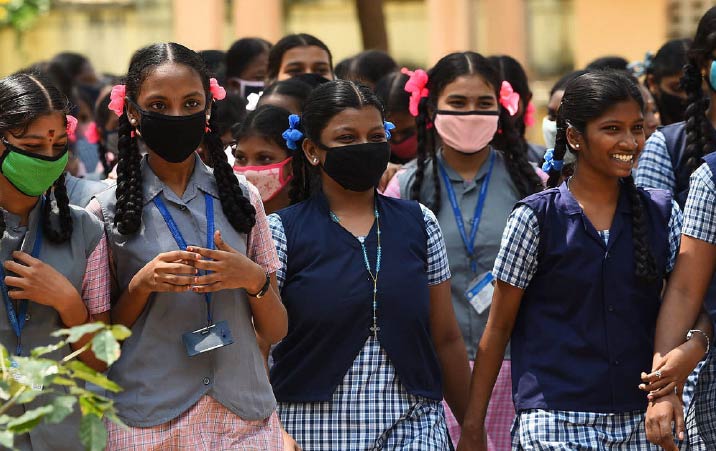A government study has questioned the implementation and relevance of a scholarship programme for Scheduled Caste and Scheduled Tribe schoolgirls, raising concern among social activists that the education ministry might now discard the scheme.
The activists believe that the government should come up with more scholarship schemes for students from the deprived sections, especially with the second wave of Covid leaving many children orphaned in these communities.
What has compounded the activists’ fears is that before the government-run Institute of Economic Growth (IEG) handed in its report in March, the Union budget had already cut the scheme’s allocation to Rs 1 crore from the previous year’s Rs 110 crore.
Ambedkarite scholar and Delhi University teacher N. Sukumar and activist Ashok Bharati said that instead of axing the National Scheme on the Incentive to Girls for Secondary Education, the government should rectify the programme’s shortcomings.
“The coronavirus has put a question mark over the education of many children from the deprived sections who have lost one or both parents. More scholarship schemes should be started instead of closing any,” Bharati said.
Under the scheme that the IEG has questioned, Dalit and tribal girls enrolled in government schools are entitled to a one-time scholarship of Rs 3,000 that is deposited in their name in Class IX. The money can be withdrawn after the student turns 18, provided she has cleared Class X and is unmarried.
The scheme was launched in 2008 to try and ensure that Dalit and tribal girls finished school and were not married off before they turned 18.
Last year’s budget allocation of Rs 110 crore was consistent with the kind of sums spent on the scheme over the past few years, but the amount was later revised to Rs 1 crore, which this year’s allocation mirrors.
The education ministry had last year attributed the fund squeeze to a plan to redesign the scheme and commissioned the IEG study, two government officials said.
The IEG studied the scheme’s impact in seven states, including Bengal. It said its implementation had remained erratic because of a lack of coordination among the Centre, states and school administrations and an absence of monitoring. Its findings:
⚫ Most students and teachers seem unaware of the scheme.
⚫ The parents often find it difficult to obtain caste certificates.
⚫ Schools struggle to upload the eligible students’ data on the online portal.
⚫ The scholarship sum is too meagre to make any difference.
⚫ Under-18 marriages have fallen, lowering the scheme’s relevance. A small sum like Rs 3,000 is no deterrent to the practice, anyway.
⚫ The girls usually clear Class X at 16 and have to wait two further years for the money. And often, the payment is further delayed.
⚫ The states’ parallel schemes are more popular.
The IEG report went to the length of saying the scheme promotes discrimination since only Dalit and tribal girls receive the benefits — delivering a sweeping condemnation of all affirmative action and welfare schemes for specific genders, castes and economic groups — an official said.
“The study’s findings do not support the scheme’s continuation. The government will take a decision,” the official said.
Bharati said the Centre seemed to have got the report drawn up to clear the decks for closing the scheme.
“If there are implementation issues, they need to be addressed. This scheme is not very popular because the government never tried to popularise it. To say it’s not relevant shows the government’s intent of scrapping it,” Bharati said.
Sukumar said the scheme’s withdrawal would hinder the efforts to end caste discrimination.
“If there’s a feeling of (undue reverse) discrimination, scholarship programs can be started for other groups or this scheme can be broadened to include them,” he said.
An email sent to the education ministry on April 5 with questions about the reduction in allocation and the possible fallout of the IEG’s report has remained unanswered.
COURTESY – THE TELEGRAPH








